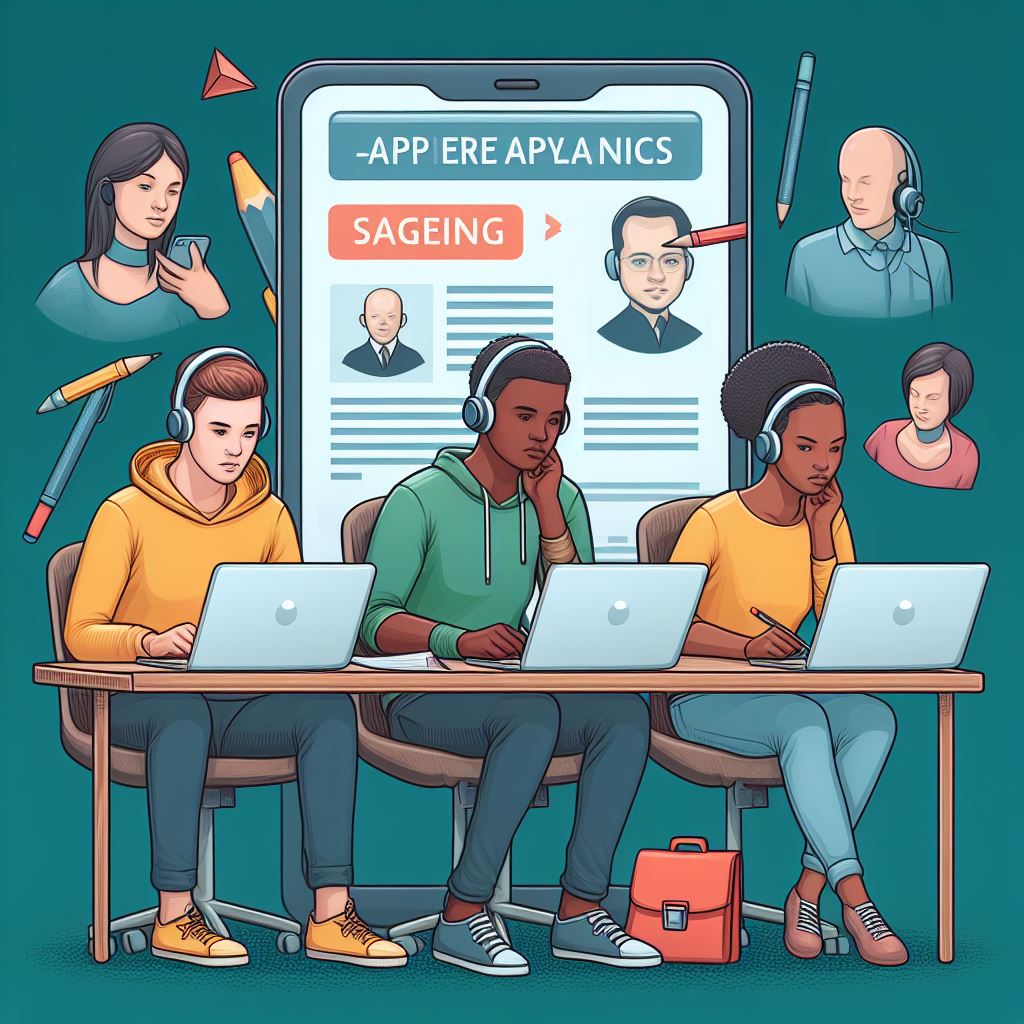For school leavers in South Africa, the transition from high school to higher education represents a significant milestone in their academic journey. However, navigating the application process for higher education institutions can be daunting, with various challenges and barriers hindering access and participation. This article defines the term “application” and states three difficulties school leavers may face when trying to apply for higher education in South Africa. Additionally, it offers potential solutions and recommendations to address these challenges and ensure equitable access to higher education opportunities.

Defining the Term “Application” in Higher Education
In the context of higher education, the term “application” refers to the formal process by which prospective students submit their credentials, qualifications, and personal information to be considered for admission to a tertiary institution. This process typically involves completing an application form, providing academic transcripts, writing personal statements or essays, and sometimes attending interviews or submitting additional documents required by specific institutions or programs. The application process is a critical step in determining a student’s eligibility for admission to higher education institutions and plays a crucial role in shaping their academic and career pathways.
Challenges Faced by School Leavers in South Africa
- Financial Constraints: One of the primary challenges that school leavers in South Africa face when applying for higher education is financial constraints. Many prospective students come from low-income households and may struggle to afford application fees, transportation costs for campus visits, and other expenses associated with the application process. As a result, financial barriers can deter deserving students from pursuing higher education opportunities, perpetuating socio-economic inequalities and limiting access to education.
- Limited Access to Information and Guidance: Another significant difficulty encountered by school leavers is limited access to information and guidance about the higher education application process. Many students, especially those from underprivileged backgrounds or rural areas, lack adequate support and resources to navigate the complexities of the application process. They may be unaware of application deadlines, admission requirements, or available financial aid options, leading to confusion, stress, and missed opportunities for higher education.
- Inadequate Academic Preparation: School leavers may also face challenges related to inadequate academic preparation for higher education. Some students may have gaps in their academic knowledge or skills, particularly in subjects essential for their chosen field of study. Others may have attended under-resourced schools with limited access to quality teaching, textbooks, or educational resources, affecting their readiness for higher education coursework and assessments.
Addressing Challenges and Promoting Equity in Higher Education Access
To address the challenges faced by school leavers in South Africa when applying for higher education, several strategies and interventions can be implemented:
- Fee Waivers and Financial Assistance: Higher education institutions can offer fee waivers or financial assistance programs to alleviate the financial burden on disadvantaged students. This may include waiving application fees, providing scholarships or bursaries, and offering financial aid packages to cover tuition, accommodation, and living expenses for eligible students.
- Enhanced Outreach and Support Services: Schools, universities, and community organizations can collaborate to provide enhanced outreach and support services to school leavers. This may include hosting information sessions, workshops, or webinars on the higher education application process, offering one-on-one counseling and mentorship, and providing access to online resources and guidance materials.
- Bridge Programs and Remedial Courses: Higher education institutions can develop bridge programs and remedial courses to support school leavers with academic preparation. These programs can offer supplementary instruction in foundational subjects, study skills development, and academic writing to help students bridge any gaps in their academic readiness and build confidence for success in higher education.
- Streamlined Application Processes: Simplifying and streamlining the application processes for higher education can improve accessibility and reduce barriers for school leavers. Institutions can implement online application portals, standardized application forms, and clear guidelines to make the application process more user-friendly and transparent for prospective students.
- Partnerships with Schools and Community Organizations: Universities and colleges can establish partnerships with schools, community organizations, and government agencies to expand outreach efforts and reach underserved populations. Collaborative initiatives, such as college fairs, career guidance programs, and outreach campaigns, can raise awareness about higher education opportunities and provide support to school leavers throughout the application process.
Conclusion
In conclusion, the higher education application process presents several challenges for school leavers in South Africa, including financial constraints, limited access to information and guidance, and inadequate academic preparation. However, by implementing targeted interventions and support mechanisms, these challenges can be addressed to promote equity and accessibility in higher education. Fee waivers, enhanced outreach, bridge programs, streamlined application processes, and partnerships with schools and community organizations are some of the strategies that can help alleviate barriers and empower school leavers to pursue their aspirations for higher education. By fostering a supportive and inclusive environment, South Africa can ensure that all students have equal opportunities to access and succeed in higher education, contributing to individual empowerment, social mobility, and national development.
